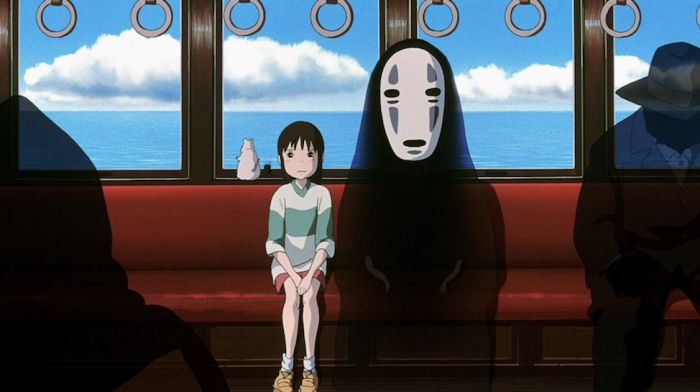On my second night of a one-year tour around Asia, I met a fellow Canadian in Bangkok.
She is an addiction counselor for teens.
She got a tattoo of this terrible looking little troll-type beast on her arm. It was of the “hungry ghost.” She said it would be a reminder to her that her compulsion to take on risky behaviors and feed her own addictions were there.
I started to become more interested in this creepy little character.
I noticed that Dr. Gabor Maté had written a book about the hungry ghost. It is geared much more toward addiction. While addiction is a strong word, most of us have some form of the hungry ghost ruling some aspect of our lives.
My inspiring sister is a yoga teacher trainer, Reiki master, and generally well-rounded human being. However, chocolate is what her hungry ghost craves, and when it wants it, her control is lost.
For me, it’s wine.
If I stop drinking wine, it becomes food. Maybe something salty or sweet. When I get rid of those habits, it becomes working too much or exercising excessively. Even those things that are good for you, when done for the wrong reasons, aren’t that good at all. It is the compulsion to cover up the pain that the hungry ghost is responsible for. These things can start as habits and morph into something far worse, like addiction.
What is the Hungry Ghost?
At this point, you might be wondering what the hungry ghost is. There are many ways to say what this human affliction is, with the hungry ghost being just one of them.
This part of our psyche where our desires lie is where the hungry ghost lives. The hungry ghost is in all of us one way or another. It is often used in addiction recovery as an explanation for why it is so hard for an addict to stop using. We can also use the word “compulsion” to describe what happens to us. Compulsion is described as an irresistible urge to behave in a certain way, especially against one’s conscious wishes.
There are a variety of reasons the hungry ghost in us is triggered, but the core of it is a lack of fulfillment.
There is a version of the hungry ghost in Tibetan Buddhism. He has been depicted as having a mouth the size of a needle’s eye and a stomach the size of a mountain. If you can imagine that, you can clearly see that it is the attempt to fulfill physical desires, but no matter how much you feed it, you will stay hungry.
My Hungry Ghost’s Appetite
My hungry ghost demanded sex, alcohol, exercise, and work. The incessant need to work and drink heavily came during a time when I was being abused by a boyfriend and my mom was dying. Whenever the thought of my ex would come up or a feeling of danger arose, I would overwork in the day and drink by night. I wouldn’t even think about it; I would just go out like a zombie to get a few beers. When happiness felt futile, I would feed my hungry ghost instead. I didn’t want to touch upon the true pain of my losses or the past trauma.
I know this now; I am wise to it. I feel the hungry ghost in me, and, instead of feeding it, I remain present in my body. I listen to the parts that hurt. I let the tears flow out of me. I allow myself to feel angry and then release it. It helps to meditate often and, even better, to meditate right at the moment we sense the hungry ghost wants his damn dinner.
Leaving Home
Tara Brach says that when we have addictions and attachments, it’s a telltale sign we’ve left home. We fixate on energies outside of us and have moved away from our own heart.
Taking a moment to see where we’re stuck instead of feeding that ghost will help to reduce it’s hold on us. We have to be willing to pay attention. The further we go down our own spiritual path, the more we will find the dark places where we have blocked energy and samskaras. Do this, and the hungry ghost pesters us less and less.
Will we have to go through some hard emotions? Probably, but at least some weird little dude inside our psyche isn’t calling the shots during our times of vulnerability.
Desire: The Root of the Hungry Ghost
Desire has many different manifestations. It can be food, sex, self-realization, and so much more. Essentially, it can be anything we yearn for. We yearn for it because, ultimately, we want to feel safe and happy. The things we feel when we are “home” are what we’re really after.
When our needs aren’t met, we become more obsessed with whatever we desire. It becomes our focus. The addict lives to obtain, do, and come down from whatever substance they’re addicted to. It’s a priority, and nothing else matters. When our needs aren’t met and we don’t try to find the core of why they aren’t met, it can lead to addictive behaviors with anything.
Quieting the Ghost
At the core of it, I couldn’t name these things. To admit we have a hungry ghost and that it feeds on certain habits, compulsions, addictions, and behaviors is a huge step toward putting it to rest.
Tara Brach has beautifully explained how we can quiet our ghost. The things we do under its control aren’t healthy, and we’re never getting to the heart of our issues.
This little beast in our psyche isn’t there without reason. He was summoned because we were hurt, lost, confused, scared, and let the scar remain with us.
Every time it rears its ugly head, we have an opportunity to start looking within to see what’s really going on.


 Share on bsky
Share on bsky





Read 14 comments and reply